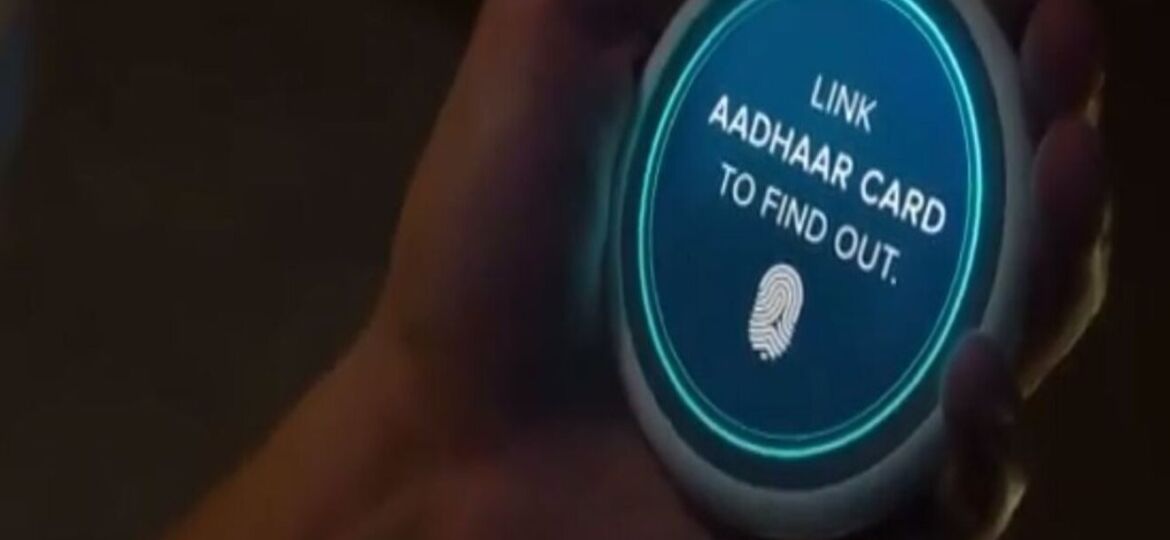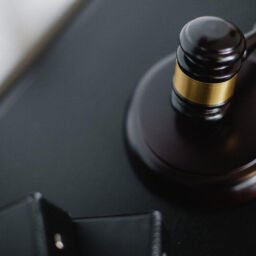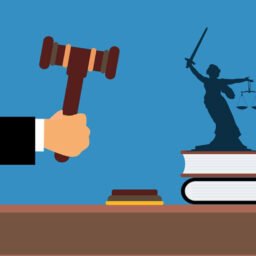
WHAT IS RIGHT TO PRIVACY?
Article 21 of the Indian Constitution states “No person shall be deprived of his life or personal liberty except according to a procedure established by law.” [1]Article 21 of the constitution can be termed as the Quintessence of Democracy as it safeguards one of the most important aspects of Democracy that is the Right to life and Right to privacy. Right to Privacy means “the right of a person to be free from any unwarranted interference.” [2] as stated in Black’s Law Dictionary. The Right to privacy was not considered a part of the fundamental rights. However, it is now one of them. Privacy refers to human secrecy and its guarantee should be provided by the government. A huge number of cases were discussed and faced in court regarding the right of privacy but it was only after the case of “Justice K.S. Puttaswamy and Ors. v. Union of India”[3] which boomed to be a landmark judgment undertaking Privacy right. The court delivered the utmost important judgment by stating that “Right to privacy is a fundamental right protected under Part III of the Constitution of India.”[4] The judgment in its sense held the highest strength in the laws and a significant step taken by the legal fraternity but this right is not absolute. In the same judgment, the court also clarified in a nutshell why it is not an absolute right and suggested a three-fold test for the same.
INTRODUCTION TO THE AADHAAR SCHEME
In January 2019, under the Aadhaar (Targeted Delivery of Financial and other Subsidies, benefits, and services) Act, 2016, a statutory body was established called the Unique Identification Authority of India (UIDAI). The body was regulated under the jurisdiction of the Ministry of Electronics and Information Technology. The role of this body was to collect biometric identification information and grant unique identification numbers to the people of India. “People of India” and not “citizen of India” because, as clarified by the Home Ministry, Aadhar will not be considered a valid document that grants any individual citizen of the country. It was further recorded in a statement by UIDAI stating,” Aadhaar is not a document of citizenship and UIDAI has been mandated under the Aadhaar Act to find out residency of a person in India for 182 days before applying for Aadhaar.” [5]Aadhaar can be used for determining a place of residence but it cannot be used for deciding the citizenship of a human being.
Aadhaar is a 12 digit unique identification number that contains biometric and demographic data of an individual. The purpose of the Aadhaar card was to identify each individual and to provide Direct Benefit Transfer (DFT) scheme to people. The aadhaar was introduced to benefit the schemes of the Government of India like MNREGA and Domestic LPG scheme where the amount is directly transferred to the bank accounts of people who are connected via Aadhar. This saves time, effort, and wastage of supplies and resources. Aadhar also makes sure that only the beneficiaries, which are the target of the schemes, are benefitted. Thus, Aadhar results in a reduction of scams and corruption in the system.
FURORE WITH AADHAAR
Aadhaar contains the personal information of almost 80 % of the population. As we enter rural population of the country, this percentage increases like “the usage of Aadhaar was widespread in India, with 95 percent of adults having Aadhaar and using it on average once a month to avail of some service or the other.”[6]This can be very dangerous if the data is leaked or breached. Data leaks can cause a tonne of dilemmas for the government of India and the people of the country. Hackers can use the information for scanning the private account or any financial transaction. There have been cases of data leaks such as recently Reliance Jio covid symptom checker database leaked online. “There has been a security lapse from Jio’s end which exposed one of its symptom checker’s core databases to the internet without a password”[7] as quoted in the Indian Express. Another case of Data leak concerning Aadhaar was when WikiLeaks secretly published a report stating that “United States top intelligence agency CIA may have access to India’s Aadhaar data.”[8]
RIGHT TO PRIVACY AND AADHAAR GO HAND-IN-HAND
Initially, when the scheme of Aadhaar was introduced, it was largely meant for the poor and deprived section of society. Now everyone has Aadhaar which becomes a bone of contention as it can be misused or leaked generating huge losses or threats at minimal. Many Petitions and PILs were filed before the Supreme Court and High Court regarding this subject. However, the Hon’ble Judges of High court and apex court have clarified that Aadhaar is only meant for the benefits, subsidies, and services of the poor strata and marginally lower-income audience and not for in general population. In a Petition filed, the Supreme Court judges along with the then sitting Chief Justice of India declined the petitioner’s request to consider Aadhaar as unconstitutional. “Justice Ashok Bhushan said collection of demographic and biometric data under the Aadhaar Act does not violate the fundamental right of privacy as the information sought is limited and only for identification.”[9]
LANDMARK JUDGEMENT IN NAME OF AADHAAR
The case of “K.S.Puttaswamy v Union of India”[10]is a landmark case concerning the Right to Privacy concerning Aadhaar. In 2012, the Government of India introduced a policy that stated that if any person has to avail the benefits of any government scheme, subsidies, or ration, they have to first link the Aadhaar card with the government. Then at that time, a PIL was filled by a lawyer, Parvesh Khanna, and Retired Karnataka High Court Judge Hon’ble K.S.Puttaswamy. According to the lawyer and former judge, the Aadhar was violating the rules of privacy and personal liberty. The policy introduced by the government was largely infringing on Equality and Privacy rights. Since UIDAI was collecting the biometric and eye scanning information from the people of India, PIL considered this as an infringement of privacy rights.
For the Issue, a five-judge bench was formed which was headed by the then Hon’ble Chief Justice of India, Deepak Mishra. Several changes, requirements, and amendments were introduced by the apex court. Section 57 of the Aadhaar Act was termed unconstitutional and hence, revoked. The section mentioned allowed all the private companies and entities to seek information of the employees via Aadhaar. But now, No private sector is allowed to gather Personal Information. The court also removed Aadhaar as a requirement of admission in any college/school or CBSE/NEET/UGC exams. But Aadhaar was also made a requirement in several arenas. Aadhaar is mandatory to avail for any government benefits, scheme, and subsidies. Registration of Permanent Account Number (PAN) card and filing income tax returns cannot be completed without Aadhaar.
CONCLUSION
Aadhaar is one of the important tools which contain information that can be misused if leaked online or revealed to the government. Therefore, there is a constant need for a robust mechanism that can protect biometric personal information and assure Indian citizens that their data is in the right hands. The right to privacy is a fundamental right that should not be violated in any way possible. Privacy of a citizen is equal to his/her respect and thus, at no cost, it should ever be dishonored. There is a need for more stringent laws and regulations that can control, monitor, and prevent data theft or leakage with the highest security. Privacy laws cannot be taken for granted. As society and technology are progressing day by day, the need and modification in privacy laws are dire. A set of checks and balances is also necessary to know whether the purpose of Aadhaar is met or not. At last, the scheme was meant for vulnerable people in society and not to make everyone vulnerable by leaking information of all.
Author(s) Name: Naman Priyadarshi (Symbiosis Law School, Hyderabad)
[1] India Const. art. 21.
[2] Right to privacy, Black’s law dictionary. HENRY CAMPBELL BLACK, M. A.. 1990
[3] Justice K.S. Puttaswamy and Ors. v. Union of India (UOI) and Ors. MANU/SC/1054/2018
[4] Trilegal, India: Supreme Court Declares Right To Privacy A Fundamental Right, Mondaq, (2017), (3 April 2021) https://www.mondaq.com/india/privacy-protection/625192/supreme-court-declares-right-to-privacy-a-fundamental-right.
[5] Sangeeta Ojha, Aadhaar card has nothing to do with Citizenship, UIDAI clarifies, (2020), (3 April 2021) https://www.livemint.com/news/india/aadhaar-card-has-nothing-to-do-with-citizenship-uidai-clarifies-11582091498824.html.
[6] Arup Roychoudhary, 30% of homeless, 27% of third-gender residents don’t have Aadhaar: Report, Business Standard (2019), (3 April 2021) https://www.business-standard.com/article/current-affairs/30-of-homeless-27-of-third-gender-residents-don-t-have-aadhaar-report-119112501547_1.html.
[7] Tech Desk, Security lapse in Reliance Jio’s coronavirus symptom checker exposed user data: Report, The Indian Express (2020),(3 April 2021) https://indianexpress.com/article/technology/tech-news-technology/reliance-jios-covid-19-symptom-checker-database-leaked-online-6391617/.
[8] WikiLeaks suggests CIA may have access to India’s Aadhaar data, Business Today (2017), (3 April 2021) https://www.businesstoday.in/technology/wikileaks-suggests-cia-may-have-access-to-indias-aadhaar-data/story/259089.html.
[9] Aadhaar scheme does not violate Right to Privacy, says SC, Economics Times (2018), (3 April 2021) https://economictimes.indiatimes.com/news/politics-and-nation/aadhaar-scheme-does-not-violate-right-to-privacy-says-sc/articleshow/65969846.cms.
[10] Justice K.S. Puttaswamy and Ors. v. Union of India (UOI) and Ors. MANU/SC/1054/2018
















